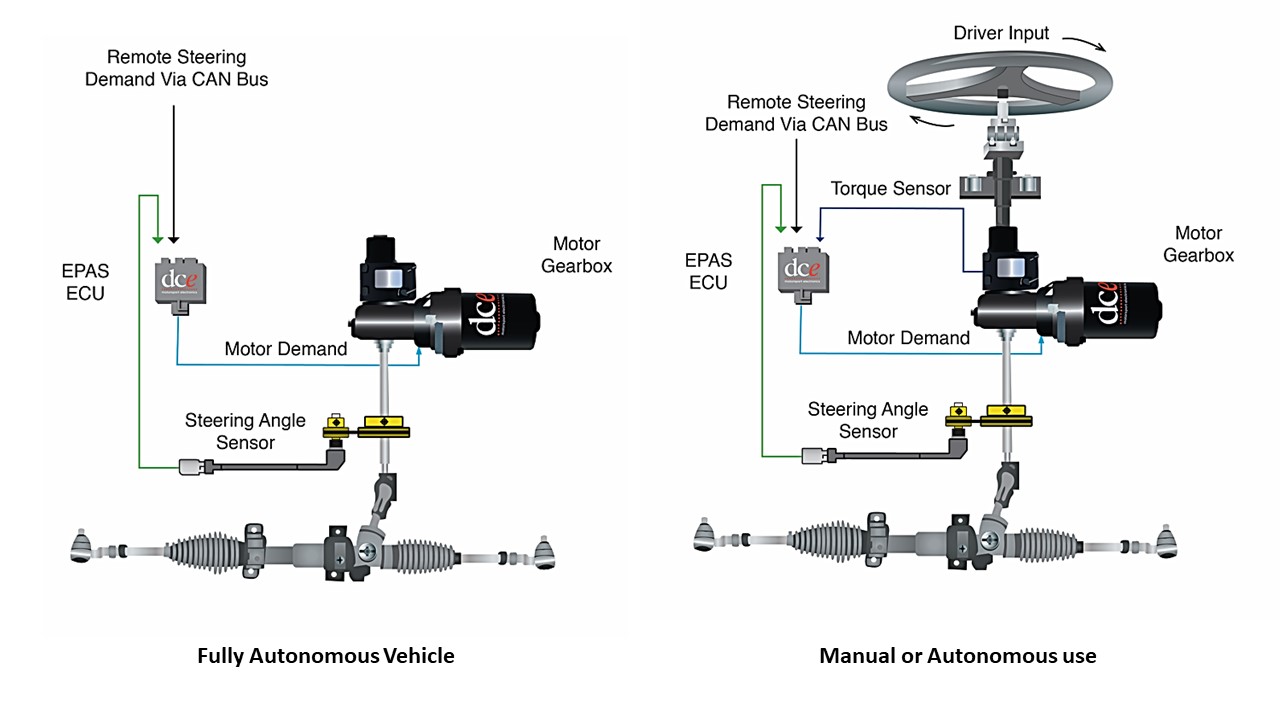
In the necessity for sustainable and energy-efficient vehicles, EPAS (Electric Power-Assisted Steering) systems have emerged as a transformative technology. Unlike traditional hydraulic steering systems, which rely on engine power, EPAS employs electric motors to deliver precise steering assistance.
This innovation enhances vehicle performance and also significantly reduces fuel consumption. As environmental concerns and rising fuel costs push industries toward energy-efficient solutions, understanding the advantages of EPAS is crucial for manufacturers and consumers alike.
How Does an EPAS Work?
EPAS integrates electrical devices such as sensors, control units, and electric motors to assist the driver in steering without drawing power from the engine. By employing an electric motor rather than a hydraulic pump, these systems minimise energy loss, especially when the vehicle is not turning. The absence of a belt-driven hydraulic pump eliminates continuous power draw, a key factor in reducing fuel usage.
This technology is also adaptive, meaning wheeling assistance can be altered based on driving conditions. Whether navigating tight urban spaces or cruising on highways, EPAS ensures optimal performance while conserving energy.
Key Benefits of EPAS Systems
EPAS systems offer a range of advantages, revolutionising modern vehicle dynamics with enhanced efficiency, precision, and driver comfort.
- Improved Fuel Efficiency
The primary advantage of EPAS lies in its ability to lower fuel consumption. By incorporating electric components that draw power only when needed, these systems optimise energy usage. Over time, this translates to considerable savings in fuel costs for vehicle owners.
- Reduced Emissions
With global attention on reducing carbon footprints, EPAS systems contribute by lessening the dependency on traditional engine-driven systems. Lower fuel consumption inherently results in fewer greenhouse gas emissions, aligning with sustainability goals.
- Enhanced Performance
EPAS systems offer smoother and more responsive steering. By deploying advanced sensors and control units, the system adjusts in real-time to provide the exact amount of assistance required. This improves the driving experience, making vehicles easier to manoeuvre.
- Lightweight Design
Eliminating the heavy hydraulic pump and associated components reduces the vehicle's weight. This not only improves fuel efficacy but also strengthens overall vehicle dynamics.
- Customisability and Scalability
Modern EPAS systems are highly adaptable, making them suitable for a diverse selection of vehicles, from compact cars to commercial trucks. Manufacturers can incorporate this technology into their designs without significant overhauls to existing vehicle structures.
The Role of EPAS in a Sustainable Future
EPAS systems are pivotal in the transition toward sustainable transportation. Their ability to integrate seamlessly with hybrid and electric vehicles further amplifies their value in reducing environmental impact. By optimising steering systems to function independently of engine power, EPAS supports the development of vehicles that are not only efficient but also environmentally friendly.
Additionally, as advancements in autonomous driving technology continue, EPAS systems are poised to play a critical role. Their precision and adaptability make them ideal for integrating into self-driving platforms, ensuring both efficiency and reliability.
Benefits of Partnering with a Reputable Energy Brand
Deploying advanced systems like EPAS requires expertise in electrical instruments and high-quality components. Collaborating with a reputable energy brand ensures access to elaborate solutions that meet industry standards. These brands provide reliable equipment and devices, helping manufacturers optimise their products for performance and efficiency.
Reputed brands are also committed to sustainability and innovation, offering technologies that align with global energy goals. They invest in research and development, enabling seamless integration of advanced systems like EPAS into vehicles. By choosing a trusted partner, manufacturers gain the assurance of durability, safety, and long-term value for their investments.
Incorporating EPAS systems into modern vehicles is a step toward a more efficient and sustainable future. With the right energy partner, manufacturers can unlock the full potential of this technology, ensuring both environmental benefits and superior driving experiences.










